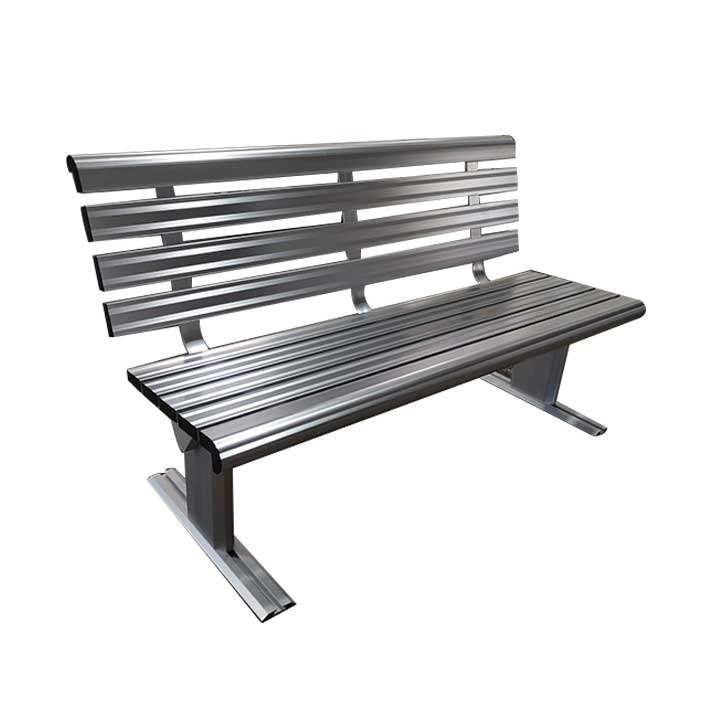What are Marine Seats
Marine seats are crucial components of boats, offering comfortable seating for captains and guests. Choosing the right marine seat is vital for ensuring comfort, safety, and overall enjoyment during boating trips. There are various types of marine seats available, each with its own features and advantages. In this article, we will explore the common types of marine seats, key components and features, the advantages they offer, and how to choose the right marine seat for your needs.
Commonly Used Types of Marine Seats:
Captain's Chair: The primary seat for the boat's driver, typically mounted on a swivel pedestal for height and distance adjustment. Captain's chairs often include armrests, built-in cup holders, storage sections, and some may have shock-absorbing features for added comfort.
Bench Seats: The most common type of boat passenger seats, bench seats can be pedestal-mounted or secured to the boat's structure. They can be configured to face forward or backward and may be foldable to create more deck space.

Folding Seats: Ideal for boats with limited capacity, folding seats can be easily folded up when not in use, freeing up deck space. They are lightweight, portable, and can be fixed on pedestals or directly to the boat's frame.
Fishing Seats: Designed specifically for anglers, fishing seats are usually mounted on pedestals and allow for swiveling in any direction. They often feature additional elements like rod holders and cup holders, and some may have shock-absorbing properties for comfort in rough waters.
Key Components of Marine Seats:
Padding: Marine seats are typically padded with materials such as foam, vinyl, or leather to provide a comfortable seating surface. Some seats may have extra cushioning in the lumbar area for lower back support.
Seat Belts: Seat belts are crucial for safety, especially in rough waters or during sudden stops. They are made of strong materials like nylon webbing and may have quick-release fasteners for easy removal.
Armrests: Armrests offer increased comfort and support for passengers. They can be adjustable or fixed and may include cup holders or storage compartments.
Swivel: Swivel seats allow passengers to turn and face any direction, making them convenient for fishing or interacting with other passengers. They are typically mounted on pedestals and have locking mechanisms to hold them in position.
Storage Compartments: Some marine seats come with built-in storage pockets or compartments, providing convenient space to store snacks, drinks, or fishing gear. Storage areas can be located beneath the seat or in the armrests.
Advantages of Marine Seats:
Comfort: Marine seats provide a comfortable seating surface, reducing fatigue and back strain during boating trips. They can also help alleviate motion sickness and other motion-related discomforts.
Safety: Seat belts on marine seats enhance passenger safety, especially in turbulent waters or during sudden movements. Shock-absorbing features in seats can minimize the risk of injuries caused by rough waves.
Functionality: Marine seats come with various features that enhance their functionality. Swivel seats, armrests, and storage compartments improve comfort and versatility. Folding seats are particularly useful for boats with limited deck space.
Aesthetics: Marine seats can enhance the overall appearance and ambiance of a boat. They come in a range of colors and styles, allowing boat owners to personalize the look of their vessel. High-quality marine seats can also increase the resale value of a boat.
Durability: Marine seats are designed to withstand the harsh conditions of the marine environment. They are made of durable materials that can resist saltwater, UV radiation, and other environmental elements. With proper care and maintenance, high-quality marine seats can last for many years.

How to Choose the Right Marine Seat:
When selecting a marine seat, consider the following factors:
Type: Choose a seat that suits the type of boating you will be doing. Captain's chairs are suitable for extended trips or open sea voyages, while bench seats are great for socializing or accommodating more passengers. Folding seats are ideal for boats with limited deck space, and fishing seats are designed specifically for anglers.
Features: Determine the features you require in a marine seat. Consider factors such as padding, seat belts, armrests, swivel capabilities, and storage compartments based on your comfort and functionality needs.
Material: Select a seat made of durable materials that can withstand the marine environment. Common materials for marine seats include vinyl, leather, and foam. Look for seats that are resistant to saltwater, UV radiation, and other environmental factors.
Budget: Consider your budget when choosing a marine seat. Higher-quality seats tend to be more expensive, but they offer better durability and longevity with proper care.
In conclusion, marine seats play a crucial role in providing comfort, safety, and functionality on boats. Considering the type of boat, passenger needs, and budget is essential when selecting the right marine seat. Look for features that enhance comfort and versatility, choose seats made of durable materials, and ensure they match the aesthetics of your vessel. By making an informed decision, you can enhance your boating experience and enjoy your time on the water to the fullest.
- Art
- Causes
- Crafts
- Dance
- Drinks
- Film
- Fitness
- Food
- Jocuri
- Gardening
- Health
- Home
- Literature
- Music
- Networking
- Alte
- Party
- Religion
- Shopping
- Sports
- Theater
- Wellness


